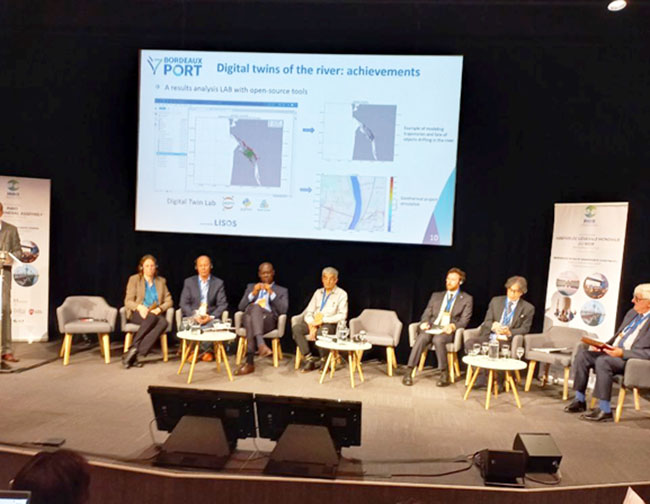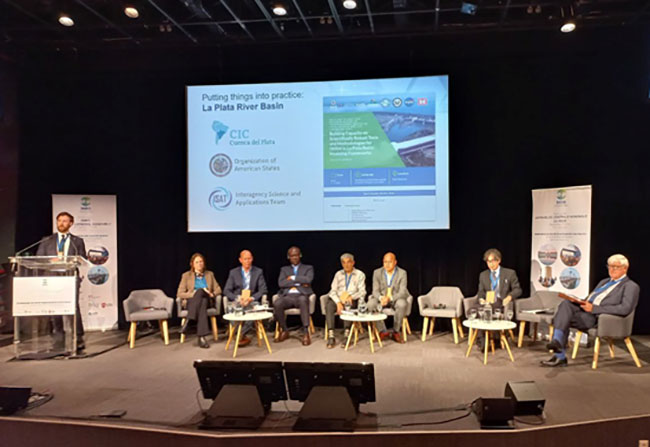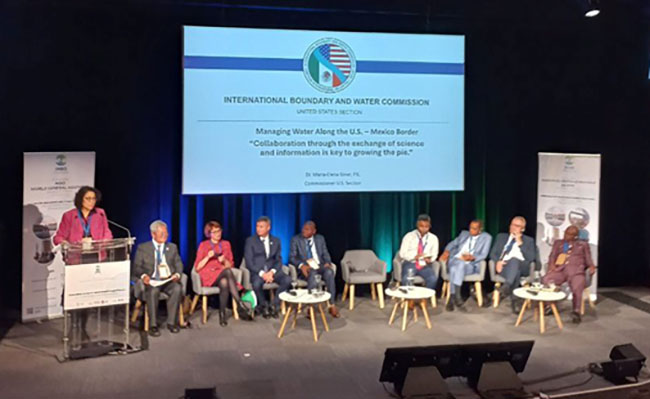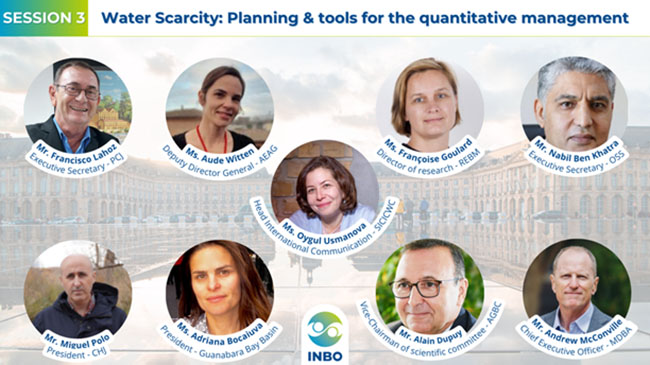No. 61 (505) October 2024
INBO WORLD GENERAL ASSEMBLY
The regular General Assembly of the International Network of Basin Organizations (INBO) was held in Bordeaux, France on 7-9 October 2024. The event on the common title “Water resources and climate change: how can basins management be more resilient” brought together 400 registered participants. The GA’s program included introductory workshops, plenary and thematic sessions.
The workshops in the first day presented water governance projects and discussed the possibilities of water management and biodiversity policy coherence. In particular, the need for more economic oriented approach to water management in Europe against the currently prevailed technical approach was stressed. A set of indicators developed under GOVAQUA project for assessment of water governance was presented as well.


The World General Assembly officially opened in the second day on 8th of October. Welcome speeches were delivered by Ms. Sylvie Cassou-Schotte, Vice-President in charge of water and sanitation for Bordeaux Metropole, Mr. Alain Rousset, President of the Adour-Garonne Basin Committee, and Mr. Loic Fauchon, President of the World Water Council. INBO World Presidency was officially handed over from the Minister of the Kingdom of Morocco to France. Ms. Barbara Pompilli, Special Envoy of the Presidency of the French Republic for the One Water Summit underlined in her speech the need for more political participation to solve water related problems in the context of changing climate.
At the High-level session on water resources management Mr. Henk Ovink presented the forthcoming report of the World Commission on Water Economics. The focus is on identifying barriers to effective water management and searching for appropriate decisions to provide incentives and innovations. The panelists of Session 1 on financing water resource management at basin level indicated that public funds would never be enough for the water sector and that private funds should be attracted (Ms. Marjeta Jager, Directorate General for International Partnerships), noted the importance of science and education at the international level (Mr. Abou Amani, UNESCO-IHP) and the need to use financing lessons from other sectors (Mr. Anders Jagerscog, WB).
Thematic session “International and transboundary cooperation for basin management” presented experiences from the International Commission for the Protection of the Danube River, the Nile Basin Initiative, the Binational Autonomous Authority of Lake Titicaca between Peru and Bolivia, the International Boundary and Water Commission between Mexico and the United States, the Mekong River Commission, the International Commission for the Protection of the Rhine, and the Basin Committee for Adour-Garonne in France. The presenters noted that the economic impact of drought is larger than that of flood (Danube basin), stressed the problems with information sharing (Nile basin) and the need for stronger coordination in joint monitoring and forecasting of floods in the Mekong basin..

Parallel thematic sessions were held on the restoring and maintaining water quality, including transboundary cooperation and water quality management. Representatives of basin commissions for Rhine-Meuse, Canada-United States, United States and Mexico, India-Bangladesh, Orange-Senqu shared their lessons on quite successful water quality monitoring.
Representative of SIC ICWC Ms. Oygul Usmanova, Head of international communications division spoke in the thematic session “Water scarcity: planning and tools for the quantitative management of water resources at basin level.” In her presentation “Ecosystems during water scarcity in the Aral Sea Basin: planning and management tools” she explained the organization of water management in the Aral Sea basin, dwelling on the problem of decreasing water availability in the region and focusing on the Amu Darya River Basin and the river delta. The well-functioning operational water management at the level of ICWC and the need for the long-term strategies in the context of growing water scarcity in the region were particularly noted.


Other sessions covered the tools and measures for adapting to climate change, including wastewater reuse and other non-conventional water resources, data and information for climate change adaptation in basins. In particular, Mr. M. Kazumitsu from Japan International Cooperation Agency presented the web-platform for visualization of all water-related events. The data transmitted from 9 regional monitoring centers is automatically updated every ten minutes. During the session on climate change adaptation in the interest of a sound basin governance, representatives of joint commissions for the Congo River and the Amazon told on methods of transboundary diagnostic assessment at basin level and further development of strategic action plans, by which they are governed in their operations.
In the last day of the World General Assembly, the updated INBO bylaws were approved and new Bureau members were elected, with SIC ICWC becoming one of the members. Next INBO World General Assembly will be convened in Brazil in 2027.